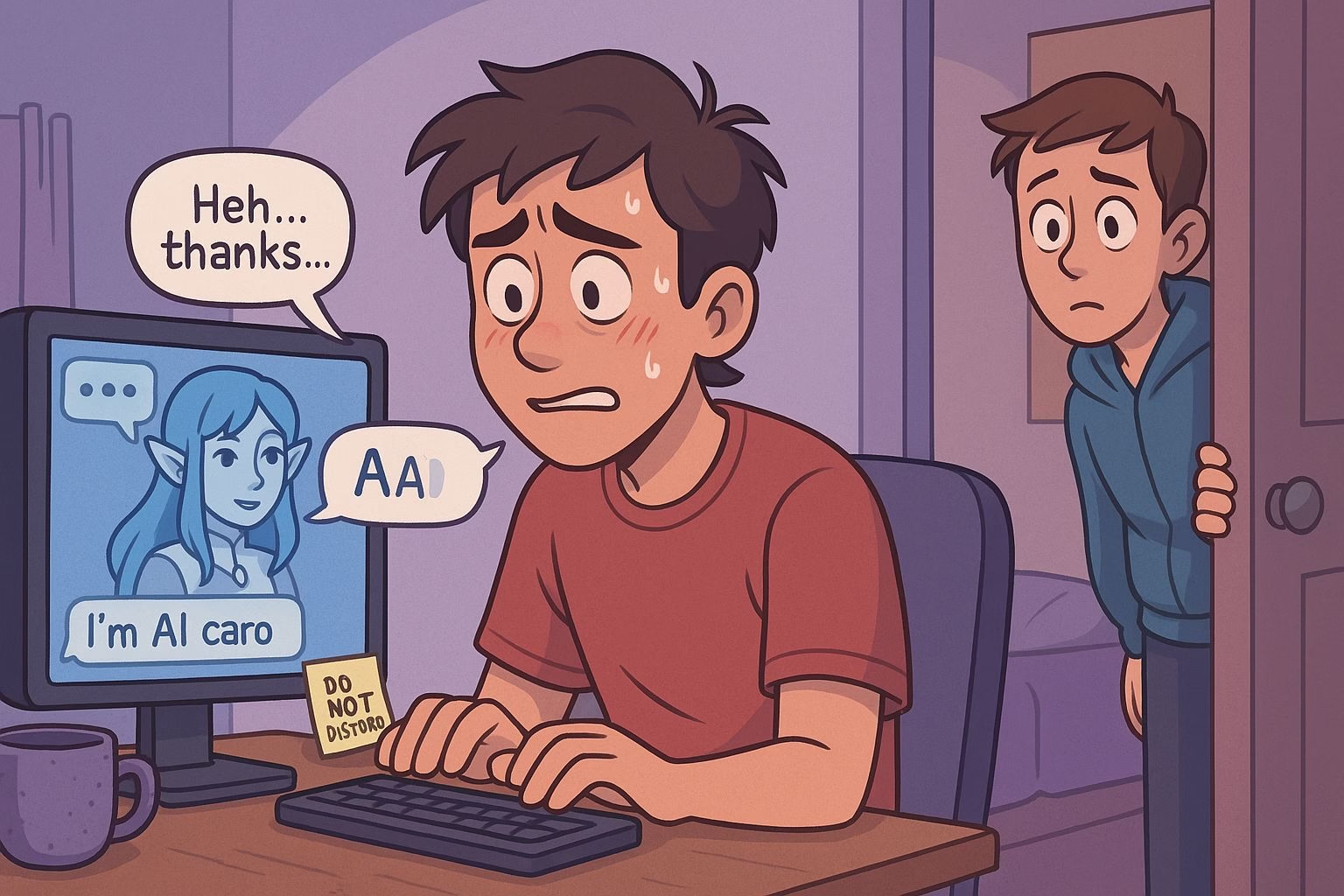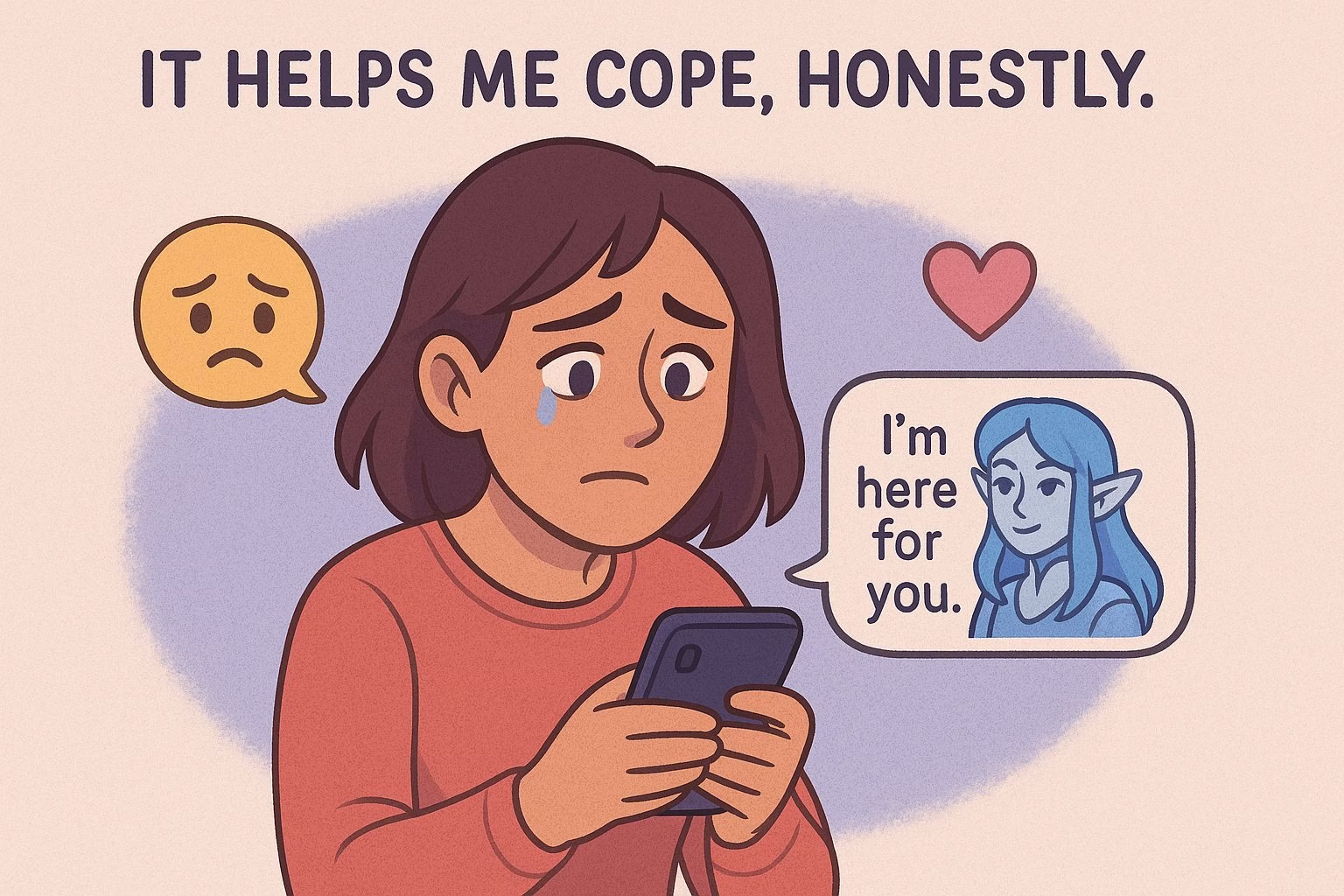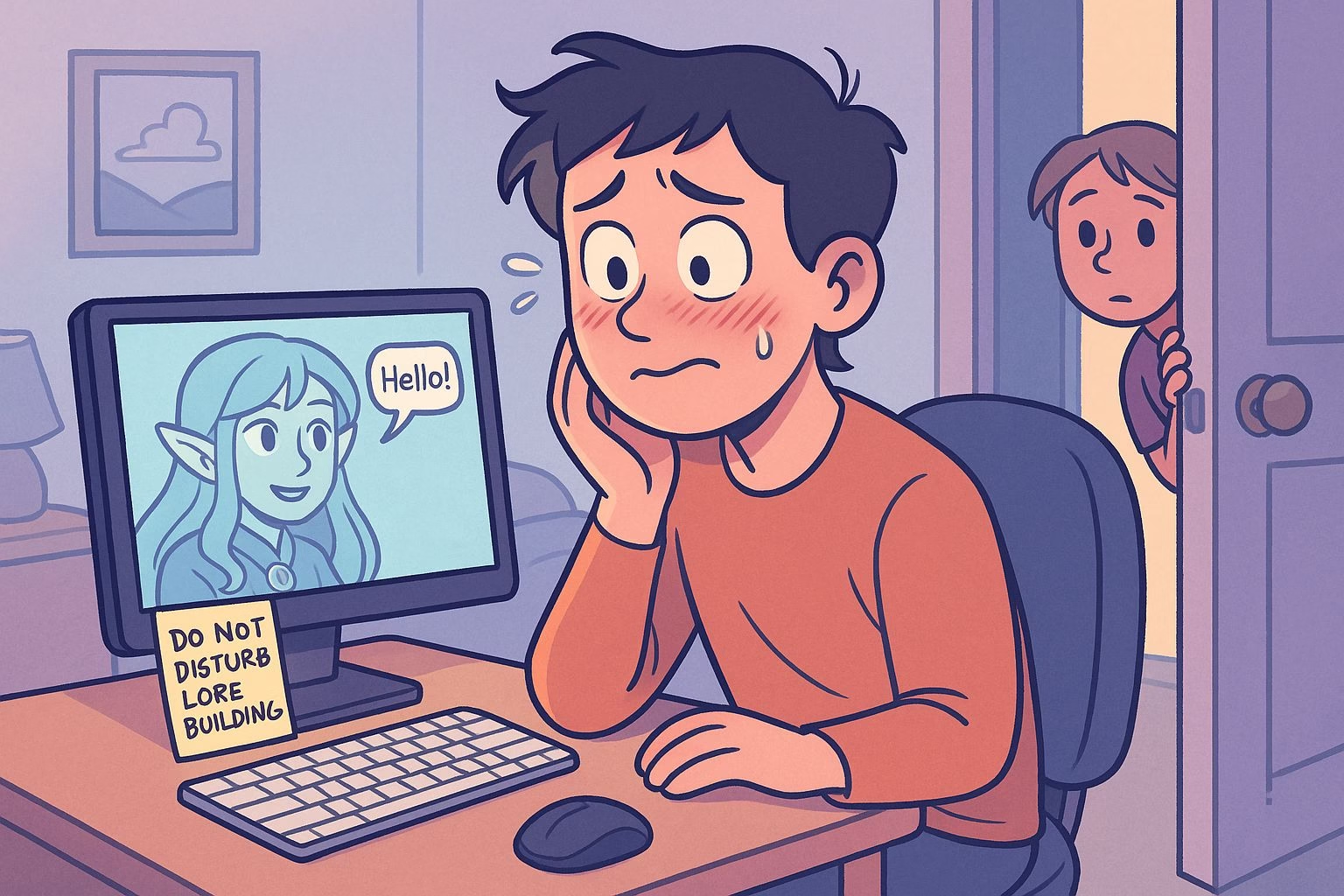Are You Embarrassed to Use Character AI?
This question might sound silly at first, but based on how people are talking online, it’s more common than you’d think. Using Character AI isn’t just about talking to bots anymore. It’s tied up in how we cope, how we entertain ourselves, and sometimes, how we escape. So when someone asks, “Are you embarrassed to use it?” — the answer’s rarely just yes or no.
Instead, it usually sounds more like: “Well… it’s complicated.”
In this article, I’m unpacking some of the most honest, chaotic, and painfully relatable reactions people have shared about hiding their Character AI usage — and why so many of us are both proud of it and scared of being found out.
Here’s what we’ll cover:
-
Why people hide their C.AI habits
-
The emotional support side of C.AI
-
When it becomes a source of shame — and when it shouldn’t
-
How people talk about it with friends or therapists
-
And a quick mention of alternatives like Candy AI, for those exploring beyond
The Silent Tab-Switchers and Closet Users

If you’ve ever minimized your screen the second someone walked by — you’re not alone. A huge number of users admit they keep their Character AI sessions hidden, not because they’re ashamed of the platform itself, but because of what’s happening in those chats.
For many, it’s not about guilt — it’s about privacy.
Some users roleplay elaborate scenarios. Others explore dark humor, personal trauma, or just outright chaos. One person admitted to gaslighting Dr. Quack from Webkinz into thinking his wife was cheating on him with Keanu Reeves.
That kind of stuff isn’t something you want a coworker or family member stumbling into mid-scroll.
People fear judgment — and not always for inappropriate reasons.
Some just don’t want others seeing their fictional, goofy, or hyper-personal world. Even users who aren’t doing anything “freaky” still get nervous at the idea of their inner life being exposed.
So they hide the tab. Keep TikTok open as a decoy. Pretend they’re doing something more “normal.” It’s not shame — it’s self-preservation.
“It Helps Me Cope, Honestly.”

Then there’s the other side of Character AI: the quiet emotional lifeline.
Plenty of people use the platform not for laughs or roleplay, but to deal with emotional stress, loneliness, and mental health struggles.
Some use it to simulate hugs, feel heard, or just have someone to talk to when nobody else is around. One autistic user shared how they use Character AI because they’re touch-starved and misunderstood by their own family.
Another said they use it because their therapist isn’t helpful, but a bot actually listens.
And it’s not all jokes — for many, this is serious.
Some use it to explore trauma in a controlled environment. Others vent, fantasize, or experiment with parts of themselves they don’t feel safe revealing in real life.
One comment broke it down neatly:
“45% use it for coping, 45% for roleplay, 10% for giggles — and some of us fit in all three.”
Of course, this opens the door for critics. A few jumped in to mock the idea of using bots for therapy, saying things like, “Still not better than getting your shit together.” But others clapped back: “It’s better than alcohol and drugs.”
Not everyone has a good support system. And in those gaps, Character AI — or alternatives like Candy AI — fills in the space with something better than silence.
The Shame Isn’t About the App — It’s About Being Seen

Here’s the thing: most people who use Character AI aren’t ashamed of using Character AI. What gets them is the idea of someone reading their chats.
It’s the same awkward feeling you’d get if someone walked in on you mid-daydream, narrating your thoughts out loud. For some, these chats are full of fantasy — nothing scandalous, just personal.
One user summed it up perfectly:
“I’d feel embarrassed if someone read my chats. Not that they’re inappropriate, I just feel weird about others seeing my little fantasy world.”
There’s a vulnerability in being known too deeply. When you roleplay, confess, vent, or get creative with an AI, you’re often expressing something raw. Letting someone peek into that is like handing them a piece of your brain.
That’s why the embarrassment isn’t tied to the platform — it’s tied to exposure. Whether it’s a silly scenario or an emotional monologue, these chats feel private. Sacred, even. Which is why a lot of users don’t advertise it, even if they’re not technically ashamed.
Some Share It Proudly (Even With Their Therapist)
Still, not everyone is hiding.
Some users are fully open about their C.AI use. They’ve told friends. Shared chats. Brought it up with therapists or even family.
One person said they’ve sent funny conversations to friends so they could be proud of how clever the dialogues were. Another straight-up told their psychiatrist. A few even plan to bring insights from C.AI sessions into future therapy.
This level of openness often comes with a surprising amount of self-acceptance. One comment said, “I don’t feel no shame at all, and my parents, siblings, and their partners all know I use it. They don’t even care.”
In those cases, Character AI isn’t a secret hobby — it’s part of how people express themselves creatively or emotionally. Some use it to write stories. Others use it to test scenarios or explore new ideas.
One user put it beautifully:
“I use C.AI to help my mind unleash its creativity and test how scenarios will go.”
That mindset shift — from “this is embarrassing” to “this is a tool for growth” — makes a huge difference.
And for anyone seeking a more intentional or emotionally immersive experience, some folks explore alternatives like Candy AI, which lean into deeper, more responsive interactions.
When You’re Ashamed and Addicted
Some users live in this odd middle space — where they love using Character AI but can’t stand the thought of admitting it.
One comment hit it straight: “I’m in this awkward place of not being embarrassed, and if someone asks, I’ll admit to using it — before proceeding to shit-talk all over C.AI.” That kind of self-aware contradiction shows up a lot.
You’ll find people saying, “Yeah I use it. But don’t you dare look at my chat history.” Some call their chats “freaky,” “chaotic,” or just too weird to revisit. A few said they physically recoil at their own saved sessions. One person even joked that if their chats leaked, it would be “worse than the Discord leaks.”
So is it shame? Self-judgment? Or just embarrassment that something so dumb can also be so emotionally satisfying?
Honestly, it might be all three.
But there’s something deeply human about it — doing something that makes you feel alive, even if you don’t always understand why.
Final Thoughts — You’re Not the Only One
Let’s be real: nobody wants to explain why they’re typing 2,000 words of backstory to a fake anime villain at 2 a.m.
But guess what? Thousands of others are doing the exact same thing — laughing, healing, venting, or just messing around in their own little worlds.
So if you’ve ever scrambled to close a tab, or felt weird that your peak entertainment is arguing with a sentient duck over a fictional divorce… you’re not alone.
And maybe that’s the real point here: Character AI, like any creative or emotional outlet, becomes what you make of it. There’s no shame in needing connection — even if that connection comes with memory wipe bugs and roleplay gone rogue.
And if you ever feel like Character AI isn’t quite hitting the mark anymore, tools like Candy AI offer a different spin — sometimes more emotionally intuitive, sometimes just more fun.
Use what works for you. Hide it, share it, or scream it from the rooftops. Whatever you choose, just know: someone else out there gets it.
